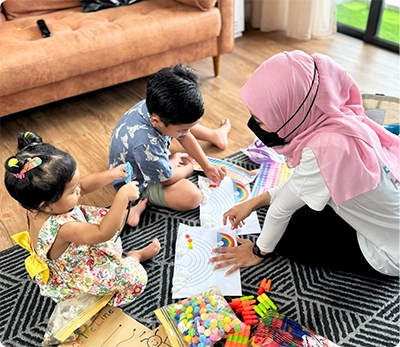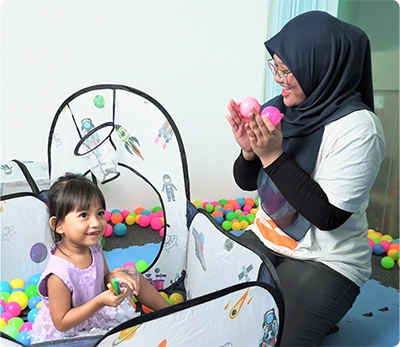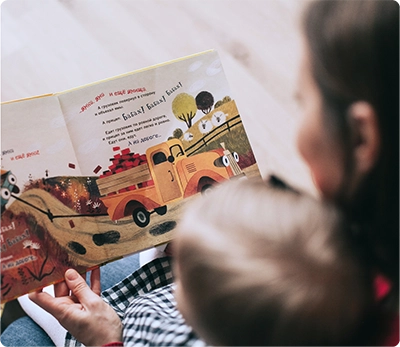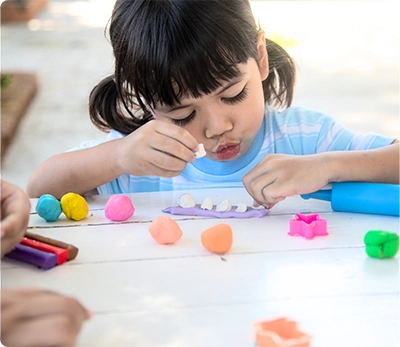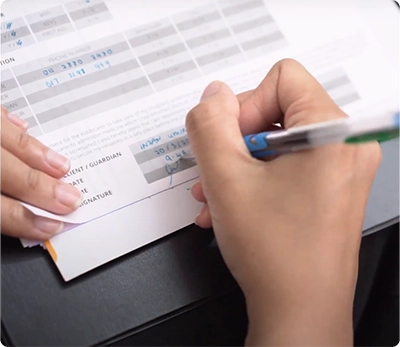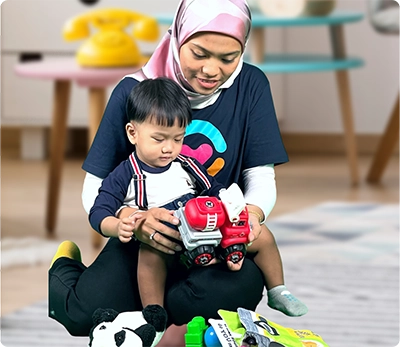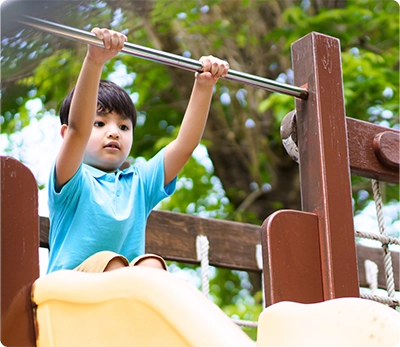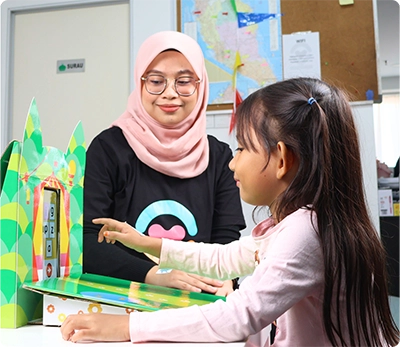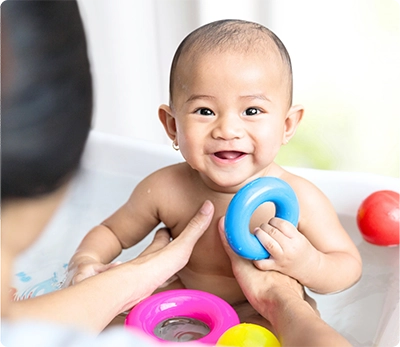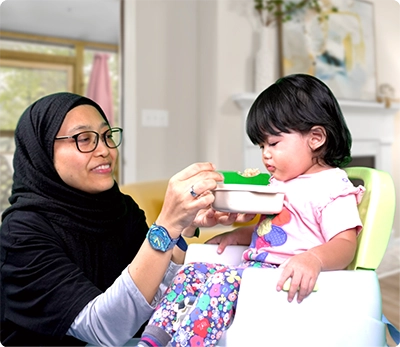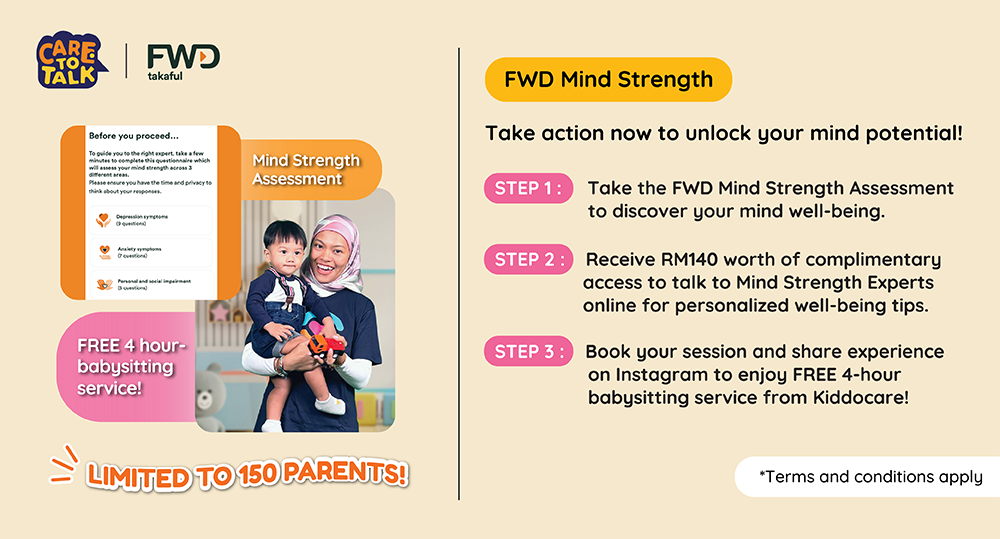“HOW CAN I TEACH MY CHILD TO START FASTING? ARE THEY READY?”

Fasting during Ramadhan is one of the Five Pillars of Islam, and it is wajib for Muslims who have reached the age of puberty. While young children are not required to fast, many parents choose to introduce their children to fasting during Ramadhan as a way of helping them understand the significance of the holy month. Since it is coming to the second half of Ramadhan, perhaps your child is starting to get interested in trying to fast, so here is how you can start explaining to them what fasting during Ramadhan is all about.
Firstly you can start by educating your children in fun engaging ways by storytelling on why Allah made Muslims start fasting, as it is a way for Muslims to empathize with those who are in need. Teach them that fasting is not just about not eating or drinking, it is also about controlling oneself from doing any bad habits because we need to always be conscious of what we do, and improve ourselves everyday.
Ramadhan is also a month where Allah loves Muslims so much that He would reward them in so many ways, through the abundance of pahala that they can get from performing any ibadahs, and many others. Tell them about the beauty of Jannah, and how you would want to be with them in Jannah forever. When your child is interested in fasting after you have explained to them what it is about, then here is what your child can gain out of fasting, and how you can help them start.
START WITH THE END IN MIND
Develops Discipline and Self-Control
Fasting teaches discipline and self-control, which are essential life skills. By training your children to fast during Ramadhan, you are instilling these values in them from an early age. This can help them in many aspects of their lives, such as academics, sports, and social relationships.
Fosters Empathy and Compassion
Fasting also fosters empathy and compassion. When children fast, they understand the feeling of hunger and thirst. Educate them that this is how some children feel, when they do not have any food or drink at home. This can help them to develop empathy towards those who are less fortunate and motivate them to help others in need.
Builds Spiritual Connection
Fasting is a spiritual practice that helps to strengthen the connection between individuals and their faith. Introducing children to fasting during Ramadhan helps to build their spiritual connection from a young age. This can lead to a more meaningful and fulfilling life.
Strengthens Family Bond
Fasting together as a family during Ramadhan is a bonding experience. It creates a sense of togetherness and helps to strengthen family relationships. Children who fast with their parents feel a sense of pride and accomplishment, which can boost their confidence and self-esteem.
HOW YOU CAN START
Start Slowly
Your child might seem too small to fast, and you might be scared to let them fast, but they need to start somewhere. So it is essential to start slowly when training your children to fast. Start with half-day fasting or skipping meals to prepare their bodies for the full day fast. Gradually increase the fasting period until they can fast for the full day.
Keep Your Child Hydrated
Ensure that your child drinks plenty of water during non-fasting hours to stay hydrated. It might get too hot during school hours, so it is important for them to sahur with healthy food and plenty of water as dehydration can cause headaches, dizziness, and other health problems.
Monitor Your Child’s Health
While fasting is a healthy practice, it’s important to monitor your child’s health. Teach them to trust their body, if their stomach does not feel good, or if they feel like vomiting due to light-headedness, trust them. Islam does not force anyone to fast if they do not feel well, so teach your children that Islam is simple and there is no forcing in practicing Islam.

Make it Fun and Engaging
Make fasting fun and engaging for your child. Involve them in meal planning for sahur and iftar and preparation for food, and encourage them to try new foods during iftar. They might start to get bored and hungry if there is nothing to do or if they are too tired to play outside with their friends, so why not play games and engage in family activities during non-fasting hours to keep them entertained and distracted from hunger.
Lead by Example
Children learn by example, so it’s essential to lead by example. If parents are fasting, children are more likely to follow suit. Encourage your children to join you in praying, reading the Quran, and performing acts of charity during Ramadhan.
SLOWLY BUT SURELY
Training your children to fast during Ramadhan is a rewarding experience that can benefit them in many ways. Fasting teaches discipline, empathy, and self-control, and helps to strengthen family bonds. However, it’s essential to start slowly, keep your child hydrated, monitor their health, make it fun and engaging, and lead by example. With the right approach, fasting can be a positive and enriching experience for both parents and children. Don’t give up on training your children to fast during Ramadhan, and watch them grow into disciplined and compassionate individuals insyaAllah.















